By experimenting with bricks in our hands, we are making sense of what we know, and what we weren’t aware of, thus unleashing our potential.
Herman Miller wrote the following interesting blog post about LEGO SERIOUS PLAY
Often perceived as a game for children, block play can actually serve a serious purpose for adults, such as helping to devise a 15-month organisational plan or improving analytical competence.
Identifying goals
‘We are the species that play the most. We just forget this’. Through hands-on experience with blocks, ‘we can explore the reasons, themes and objectives of the given purpose-oriented scenarios and create new connections with our brains that turn intangible ideas into concrete forms’.
‘Sometimes, concrete actions can create situations’. Like Google, after they realised the shared narrative of their current and future identities, they undertook a set of actions that completely changed their behaviours.

Dominating is slightly different from leading. ‘Many leaders are very fast thinkers, so they are quicker to voice their ideas and then dominate, and this is appreciated’.
Exploring the unknown
Play is fearful to some who consider it too abstract for building vision, but the key to play is that our creations don’t have to look like anything we’ve seen before, ‘because you’re exploring and experimenting something totally new’. It’s meant to be a realisation process that leads one to what was overlooked before while consolidating one’s ‘can-do’ attitude.

With clear narratives of values and goals, people create their own answers before going into a huddle for the final model

Recognising true collaboration
There are always rules for games. They create the culture of the world the players inhabit. Block play facilitates successful collaboration by ensuring a levelled playing field in which emotions are aligned, a system is enforced and people are forthright when contributing their knowledge and intelligence to achieve a robust outcome. To a degree, play allows people to be who they are, as long as they play by the rules. However, this is difficult to achieve in countries or organisations that have very strong hierarchical structures.

‘Commitment is a voluntary choice. We cannot expect people to execute and live up to a plan that they aren’t involved in building, so you need to have everybody’s involvement’, Per said. ‘We are not saying that hierarchy isn’t a good thing and shouldn’t exist’, but in the process of serving the diverse answers and the goals of play, people will realise the cost of not collaborating. ‘This notion suspends who’s the boss, leaders and who has the most seniority. It’s a very healthy thing‘.
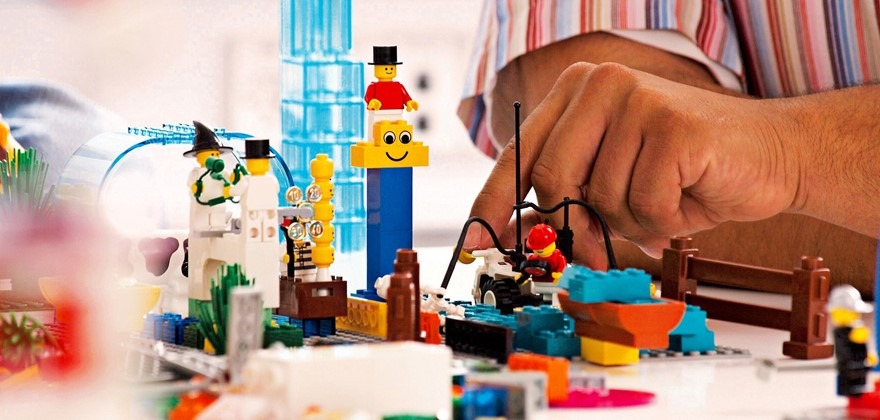
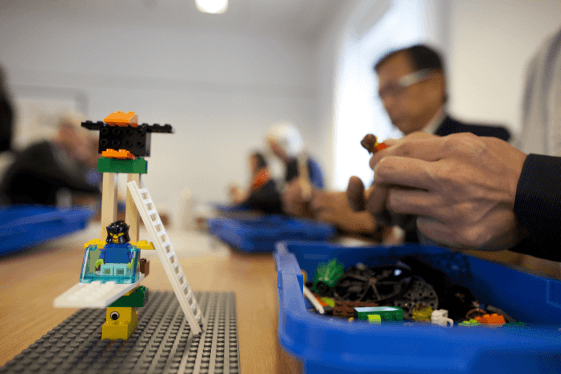
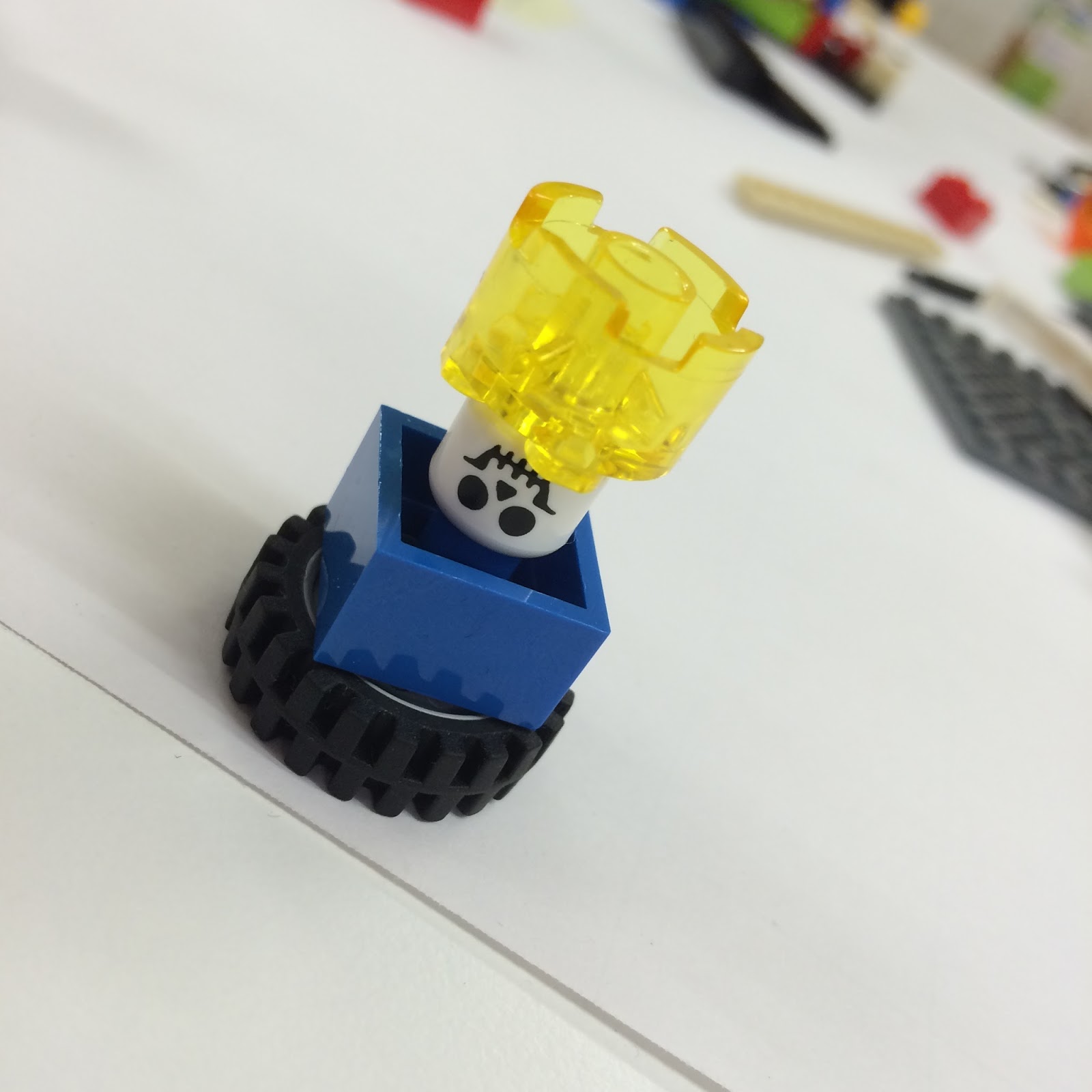




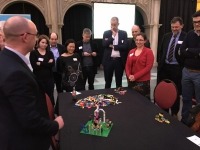

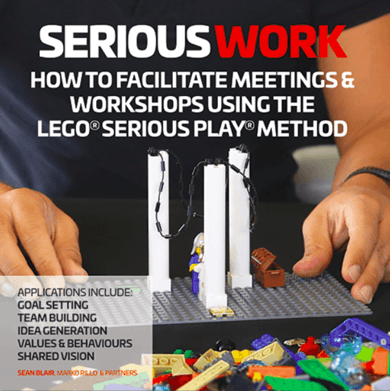
 Become a LEGO Serious Play facilitator - check one of the upcoming training events!
Become a LEGO Serious Play facilitator - check one of the upcoming training events!